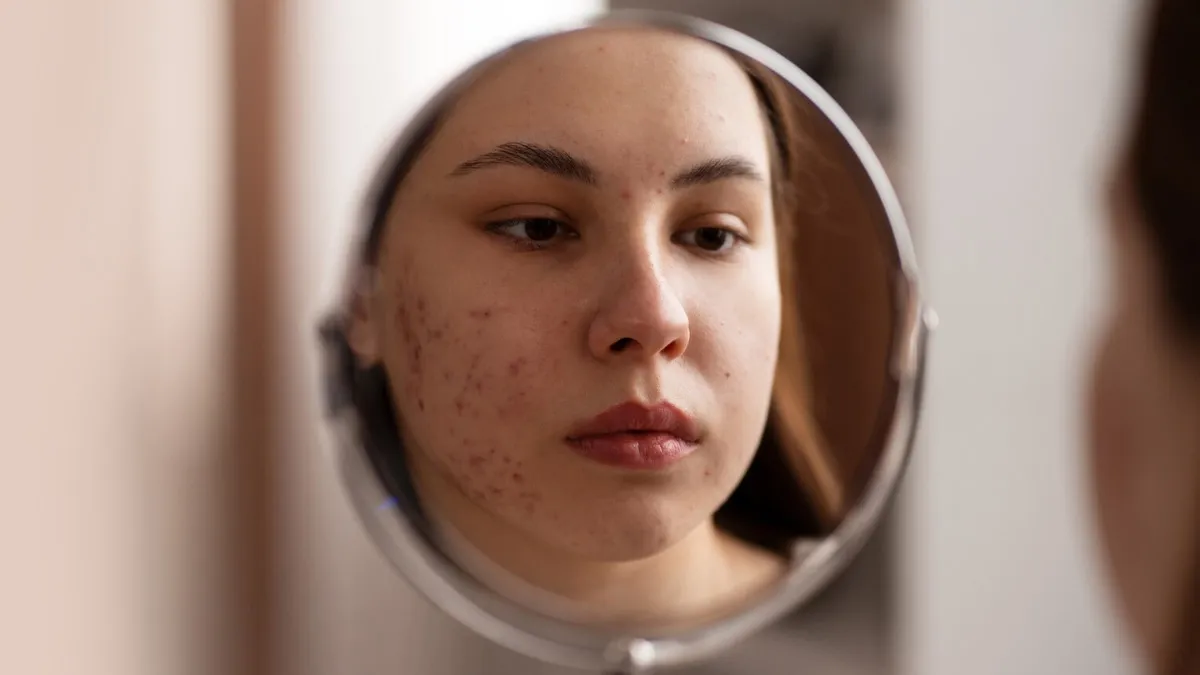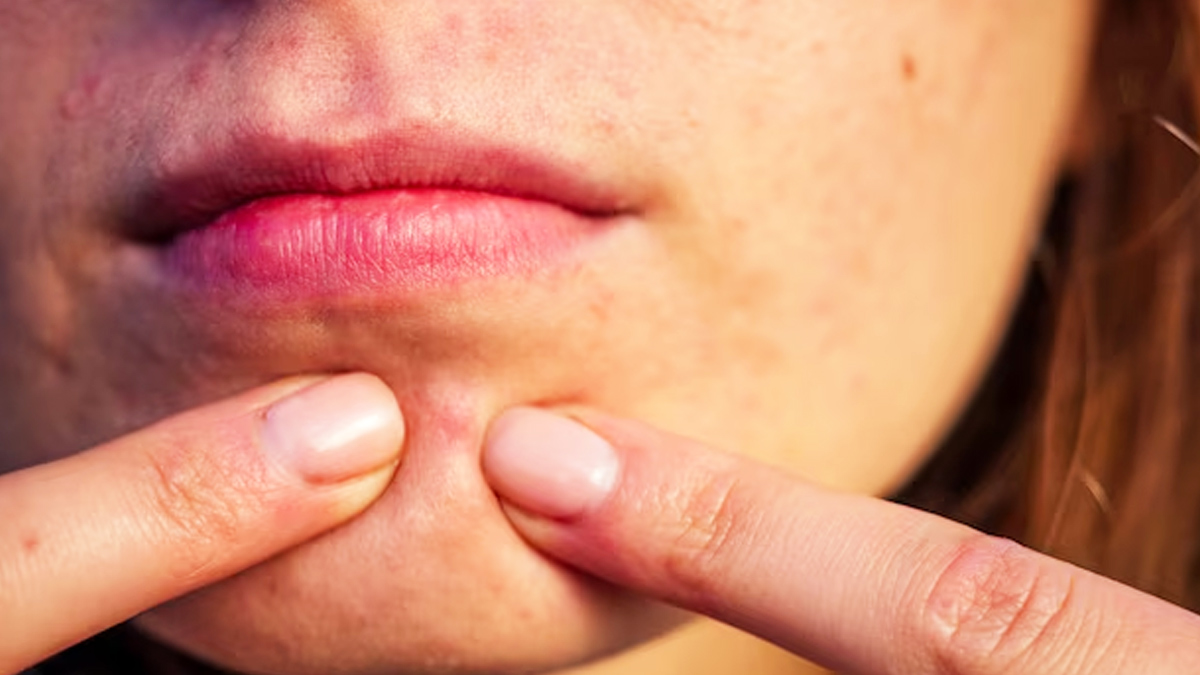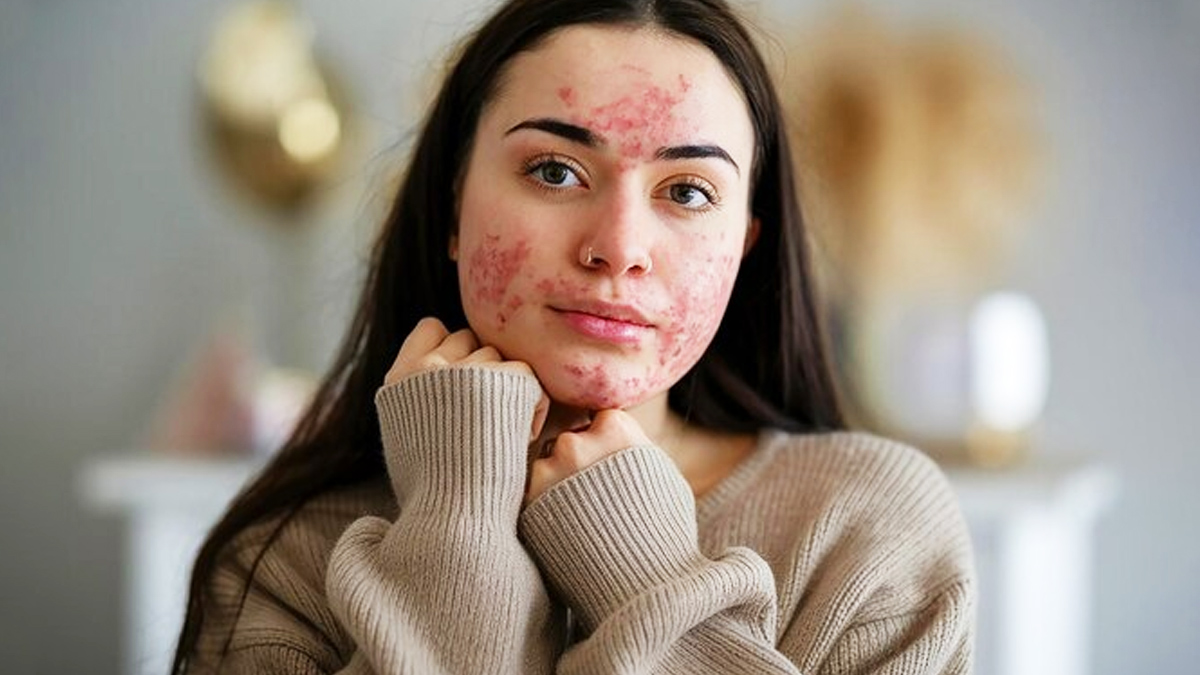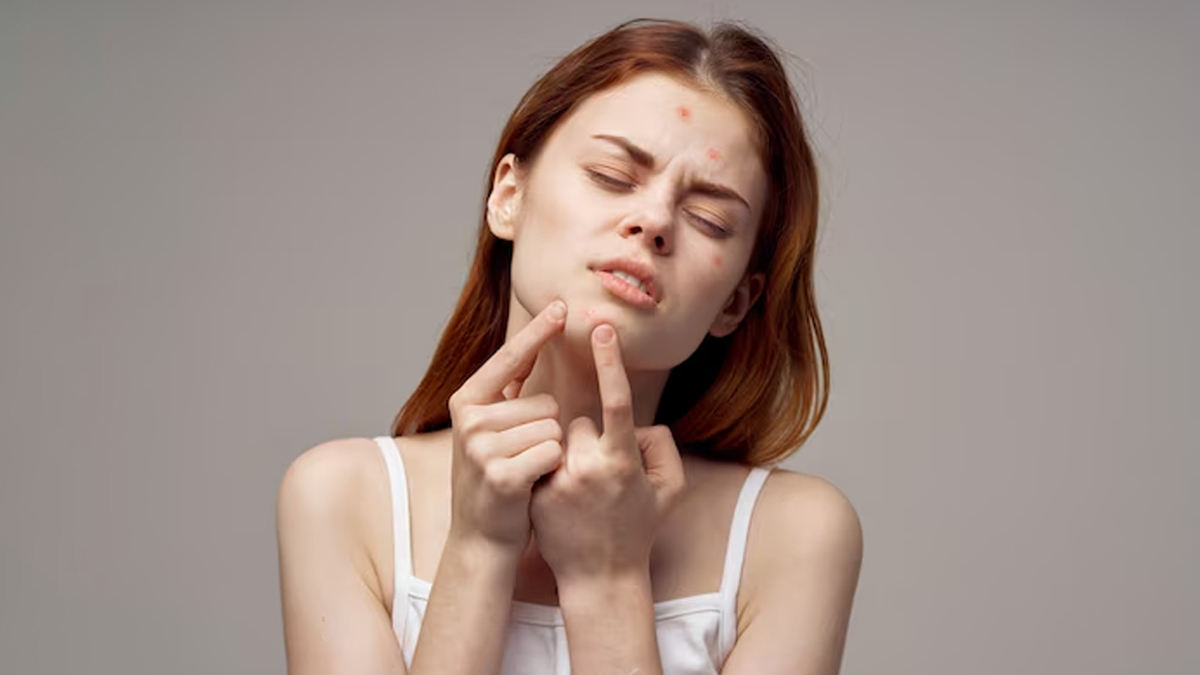
Polycystic Ovary Syndrome (PCOS) is a common hormonal condition that affects women of reproductive age. According to the World Health Organization (WHO), the hormonal disorder affects an estimated 6–13% of reproductive-aged women. What's concerning is that up to 70% of affected women remain undiagnosed worldwide.
Table of Content:-
PCOS is characterised by irregular periods, excess androgen levels, and/or polycystic ovaries; however, women experience a wide range of symptoms, including acne flare-ups.
However, distinguishing between PCOS-related acne and regular acne can become difficult sometimes, which is why it is crucial to consult a doctor and seek their advice. At OnlyMyHealth, we connected with a doctor to help you differentiate between the two acne types, and here's what she shared.
Also Read: Acanthosis Nigricans: Expert Explains This Condition That May Cause A Dark Neck
Understanding PCOS-Related Acne

PCOS-related acne is a common symptom of PCOS that primarily occurs due to hormonal imbalances, particularly elevated androgen levels. These hormonal fluctuations can lead to increased oil production, clogged pores, and inflammation, resulting in acne, often appearing on the lower face, jawline, and upper neck.
A 2022 study published in the Journal of the Endocrine Society found that adult acne is significantly more common in women with PCOS than in the general population. While about 17% of adult women without PCOS experience acne, the prevalence rises to 30–40% in women with PCOS and even higher in those with severe acne.
According to Dr Priyanka Kuri, Consultant Dermatologist, Aster Whitefield Hospital, Bengaluru, in PCOS specifically, androgens—the male hormones such as testosterone that a woman produces in trace form as normal—are secreted in high amounts by the ovaries. She explained, "If a woman has too many androgens, the hormones referenced above will cause the glands in the skin that secrete the oil (the sebaceous glands) to be enlarged and secrete large amounts of sebum, which is the oily liquid. The excessive sebum further aggravates an existing condition that forms when dead skin cells pile up and block the pores and supports the skin bacteria that are responsible for causing acne to thrive."
"This cumulative condition ultimately causes inflammatory acne lesions like whiteheads, blackheads, painful cysts, or even deep nodules," Dr Kuri added.
Signs Of PCOS-Associated Acne

Acne can occur for a multitude of reasons, but certain patterns, according to Dr Kuri, may indicate a likely association with PCOS, such as:
- The pattern of the acne locations on the face, especially on the lower face along the jawline, chin and neck region
- Cystic, painful or deep acne that does not respond to normal non-prescription topical treatments for acne
- The acne being present with other PCOS signs (e.g., irregular or absent periods, unwanted facial/body hair (hirsutism), hair thinning on the scalp, weight gain, and/or excess, dark pigmentation of skin (acanthosis nigricans)
- Persistent chronic acne into young adulthood (particularly if it began after childhood and/or became worse in your 20s or 30s).
- If you see any of these patterns, you may want to see a dermatologist or endocrinologist or gynaecologist to obtain a comprehensive diagnosis.
Also Read: Dermatologist Suggests An Ideal PCOS Skincare Routine
How To Differentiate Between PCOS Acne And Normal Acne
Acne due to PCOS usually has some significant differences from normal acne, says Dr Kuri. These differences include:
Location: Acne related to PCOS typically appears on the lower region of the face – jawline, chin, neck – and sometimes on the upper back and chest. Typical acne on a normal complexion typically has a more traditional or classic location on the face, particularly in adolescents when the usual site is on the forehead, nose, and cheeks.
Type: Acne linked to PCOS is classic cystic acne, which has larger, deeper, painful, and inflamed pimples. They can scar and are difficult to treat.
Chronic: Acne that affects teenagers is likely to resolve with age or general skin care measures; PCOS-related acne is chronic and will more often than not remain unchanged or worsen as the woman ages so long as the underlying hormonal imbalance is untreated.
Severity: The severity of PCOS acne can suddenly worsen, particularly at times of hormonal fluctuation such as menses or in periods of extreme stress. PCOS acne tends to not respond to acne treatment alone.
How To Manage PCOS Acne

PCOS-related acne and other skin problems require a long-term, holistic treatment. These include:
Hormonal therapies: The menstrual cycle is kept regular by birth control pills, which also prevent androgens. Spironolactone generally functions against the male hormones on the skin.
Topical treatment: Various modes of topical treatment can be employed by dermatologists, such as retinoids, clindamycin, azelaic acid, or benzoyl peroxide, depending on the skin and severity of acne.
Medications: In some cases, the use of oral antibiotics for short-term inflammation reduction is possible. Metformin would usually be used for treating insulin resistance.
Changes in lifestyle: Low-carb, low-sugar diets may produce normal androgen and insulin levels. Physical activity can also contribute to hormone balance as well as increased insulin sensitivity.
Professional treatments of the skin: Chemical peeling, laser treatment, and light treatment are still being watched to assist in removing acne and scarring.
Treatment of pigment and hair disorders: These can include counselling on laser hair removal or topical lightening drugs for hirsutism or hyperpigmentation, respectively.
Conclusion
PCOS can lead to various changes in the body, some of which can be very noticeable. These include painful, cystic acne that don’t usually go away. However, their appearance may sometimes be confused with regular acne, which is why distinguishing between them is very crucial. Speaking to a doctor or a dermatologist can help determine the underlying cause of the acne.
Also watch this video
Read Next
IV Drip Therapy For Radiant Skin: Does It Work? Dermatologist Explains Types, Benefits, And Risks
How we keep this article up to date:
We work with experts and keep a close eye on the latest in health and wellness. Whenever there is a new research or helpful information, we update our articles with accurate and useful advice.
Current Version
